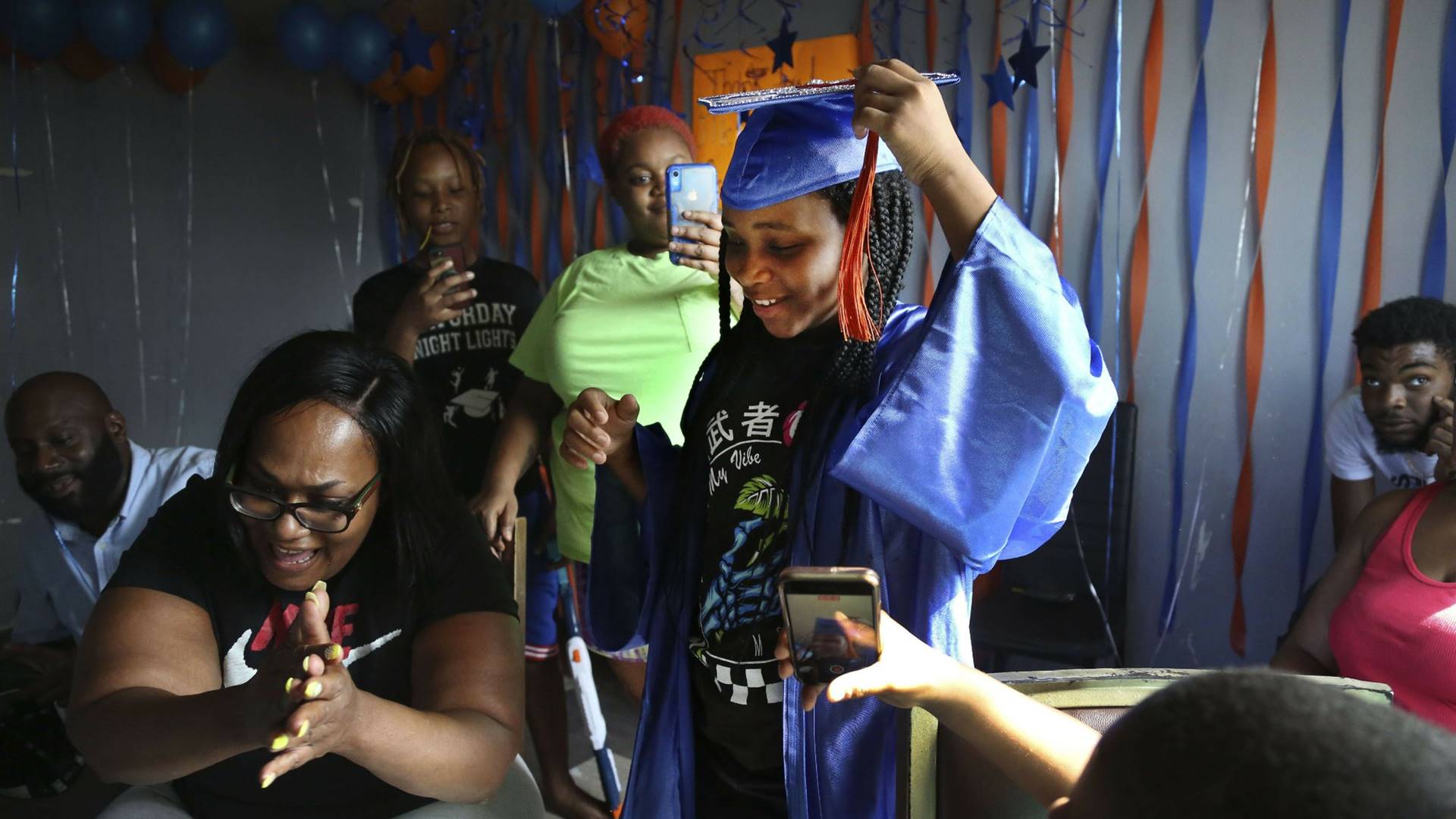NEW YORK: At the peak of the coronavirus pandemic this spring, Sharawn Vinson often woke up crying. A recurring thought was making the unemployed single mother desperate: That her kids could go hungry.
There was also fear of contracting the virus, which has disproportionately hit low-income Black families like hers. Meanwhile, some of the largest protests against racial injustice in decades were transpiring right outside their window, after the family had experienced its own terrifying encounter with police earlier in the year. There were unpaid bills and feelings of shame from having to go to a soup kitchen in search of a meal.
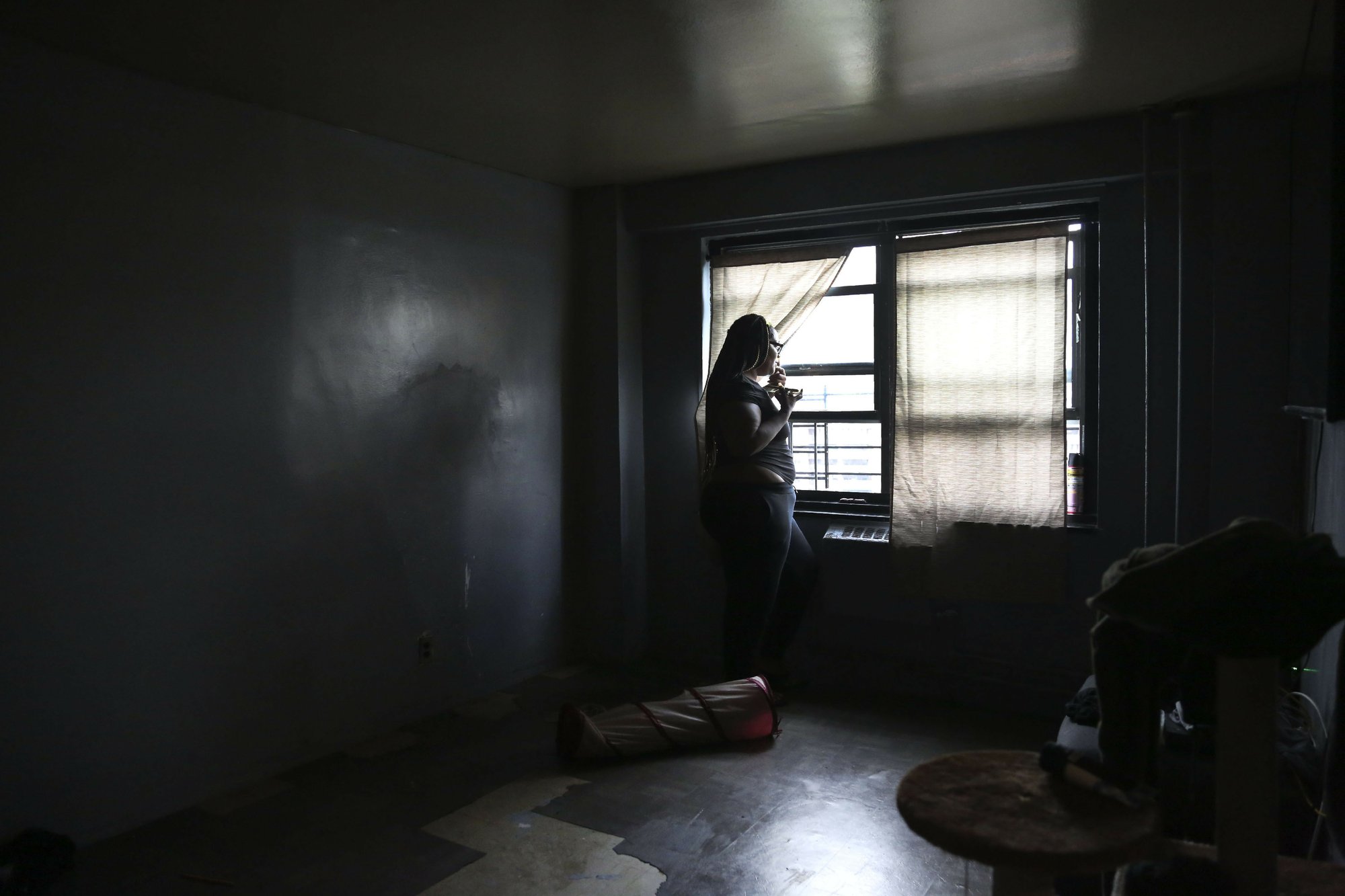
So Vinson made the painful decision to send 11-year-old twins Mason and Maddison to live with their father, six states to the south, knowing that way they’d at least be fed.
Bosnia and Herzegovina’s refugee crisis getting out of hand
“I needed them to breathe,” Vinson said, wiping away tears in her living room of peeling gray walls in a Brooklyn housing development.
Vinson was not alone in struggling to put food on the table in this historically tumultuous year. In New York City alone, an estimated 2 million residents are facing food insecurity, a number that the city’s mayor estimates nearly doubled in the pandemic amid the biggest surge in unemployment since the Great Depression. The scope of the problem outstrips previous crises such as the Great Recession, according to those who are working to combat it, and it’s not going away anytime soon.
“It’s never been this tragic for such a sustained period of time. Since COVID hit, the numbers of people in line at food pantries and soup kitchens skyrocketed, and it’s not going down,” said Rosanna Robbins, director of food access and capacity at City Harvest, the city’s biggest food rescue organization. “And so I think for us it’s just adjusting to the fact that we expect there to be a real need for free food for a very long time to come.”
When New York schools closed in March, Vinson’s children lost overnight the free breakfasts and lunches they relied on on in normal times. Grocery store shelves were poorly stocked, and her pantry was almost bare. She began skipping meals to make sure they ate and having them wake up later to try to trick hunger by giving them two meals a day instead of three.
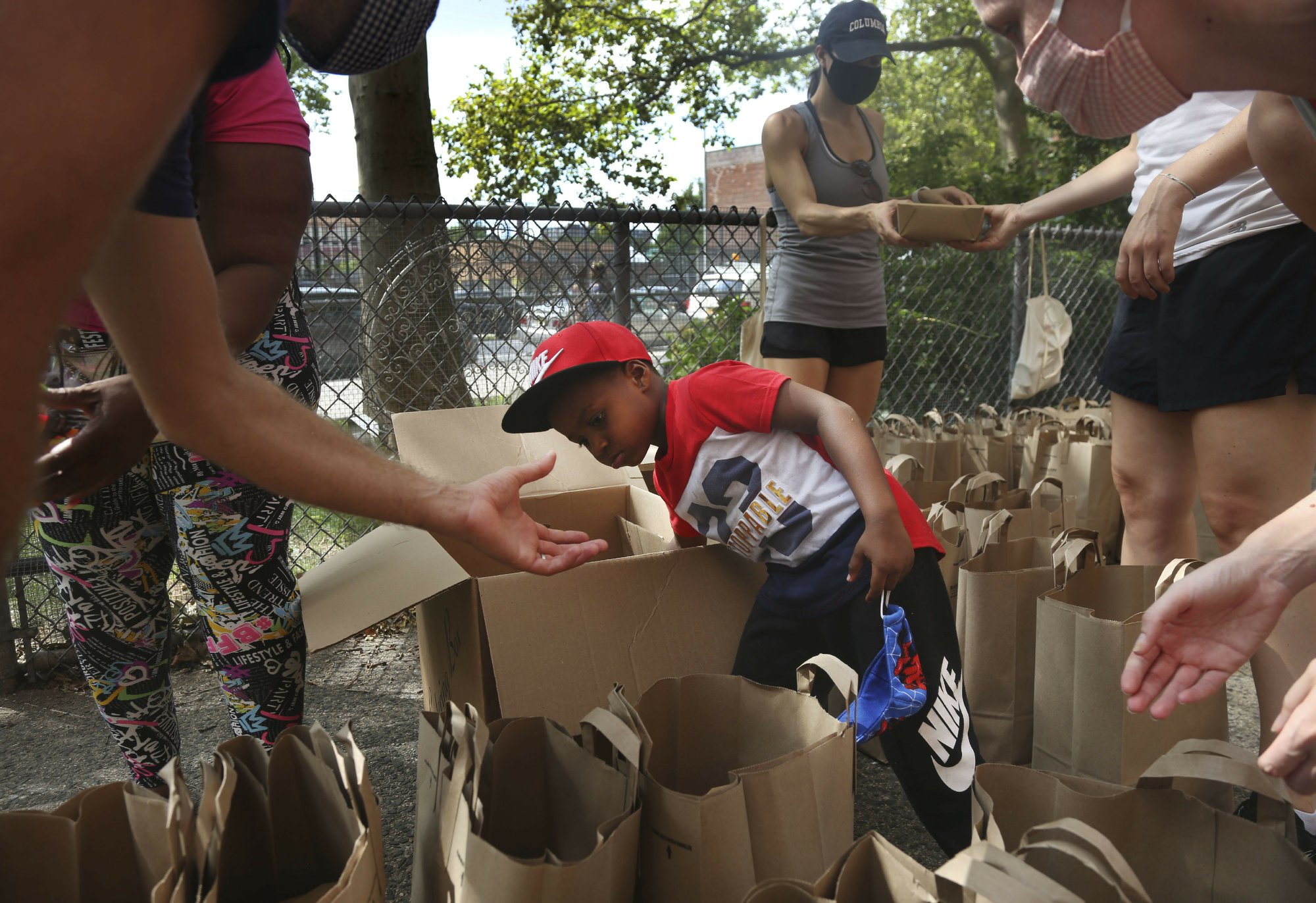
“You never realize how important schools are until you don’t have them,” Vinson said.
Prince Harry says social media is stoking ‘a crisis of hate,’ calls on businesses to pull ad funding
“I’d open the refrigerator and I’d see the struggle,” she added, “and also sacrifice.”
Oldest daughter Jasmin, 25, and 5-year-old grandson Hunter were living at a homeless shelter but came to visit her at the Lafayette Gardens public housing complex, where the family would share whatever they could scrape together for lunch.
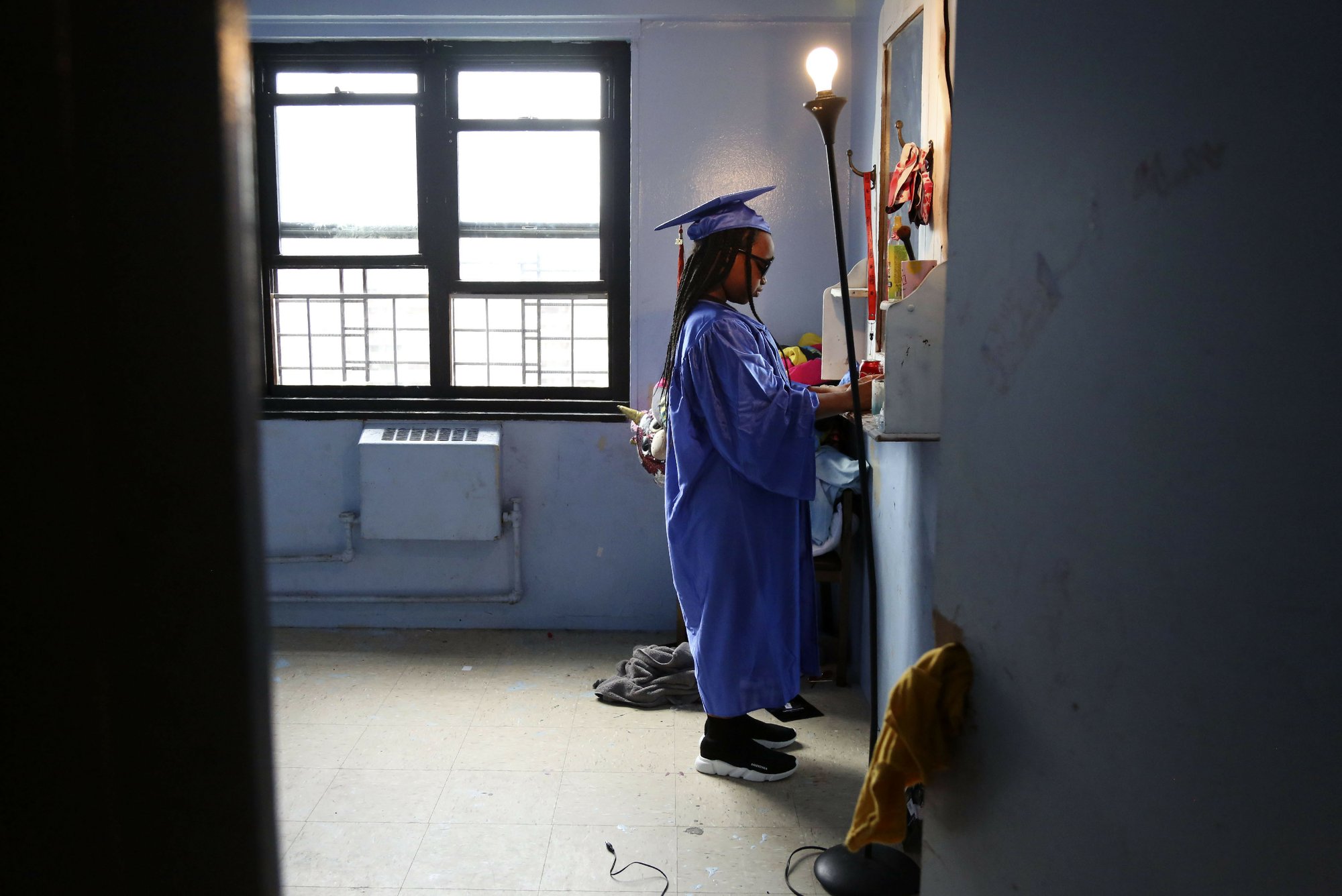
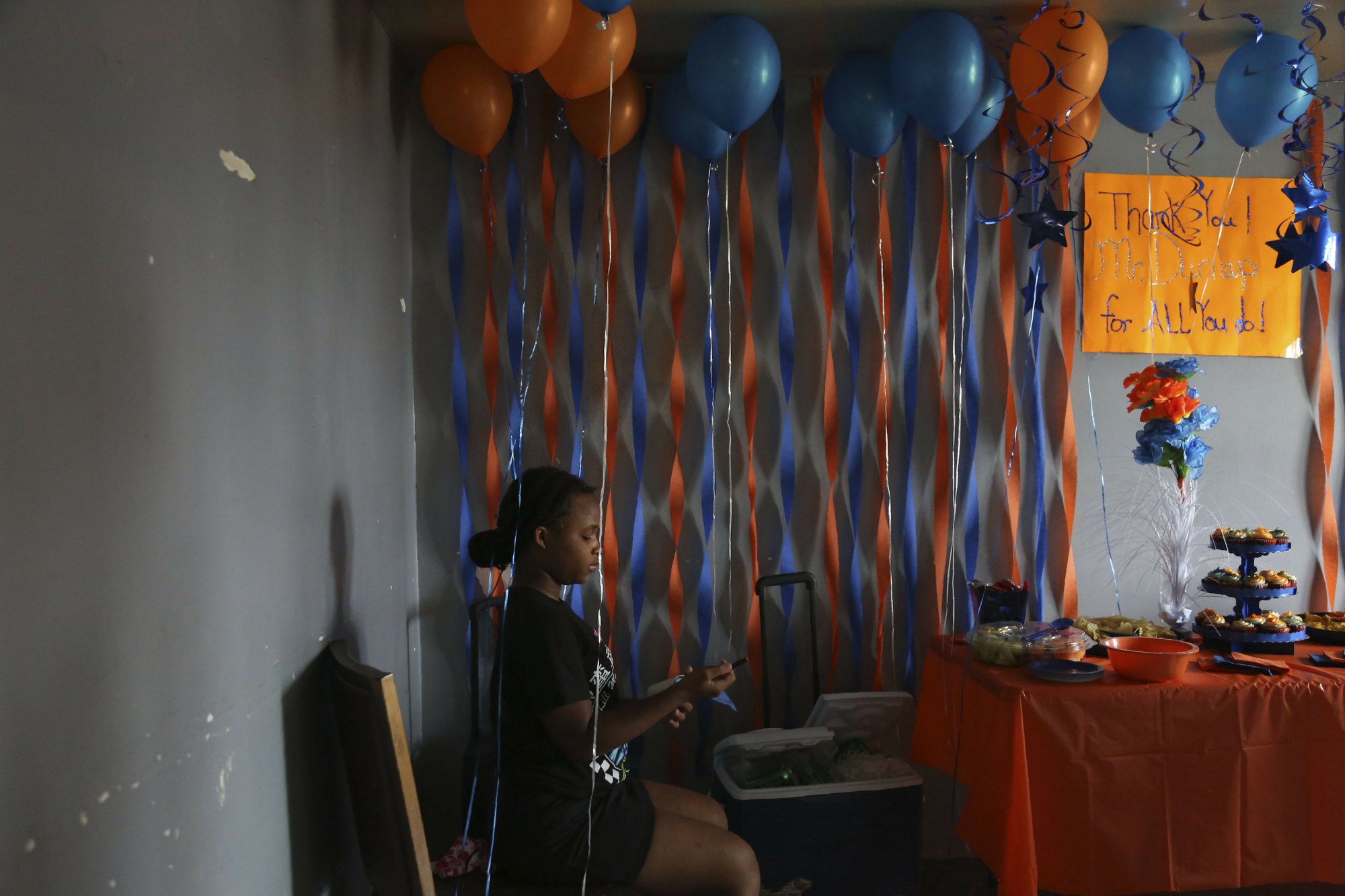
“I know that this is just not it,” she said of getting through the pandemic. “There’s more, there’s something, it’s not the end.”
Across the city, lines at pantries stretched for blocks. Social distancing was complicating food distribution efforts, and many pantries lost older volunteers who stayed home due to the high risk of severe effects of COVID-19. A network of churches, volunteers, city government offices, restaurants, and immigrant centers stepped in to fill the void.
Euro zone banks could ‘face difficulties’ if economic crisis deepens, ECB supervisory chief warns
In May, Vinson saw a Facebook post seeking volunteers for a pantry run by a restaurant owner and a Baptist church, providing hundreds of meals to people in need along with notes bearing inspirational prayers or good wishes such as “What doesn’t kill you will build you.”
“I said, you know what? That’s something that’s up my alley,” said Vinson, whose job before the injury and the pandemic was at a shelter for people with mental illnesses and chemical addictions.
Vinson also felt she could set an example for her children. She began bringing Jasmin and the twins to help distribute the food as fellow volunteers, helping teach them the values she got from her own mother. It was also a way to make sure her kids got at least one meal a day, from the pantry.
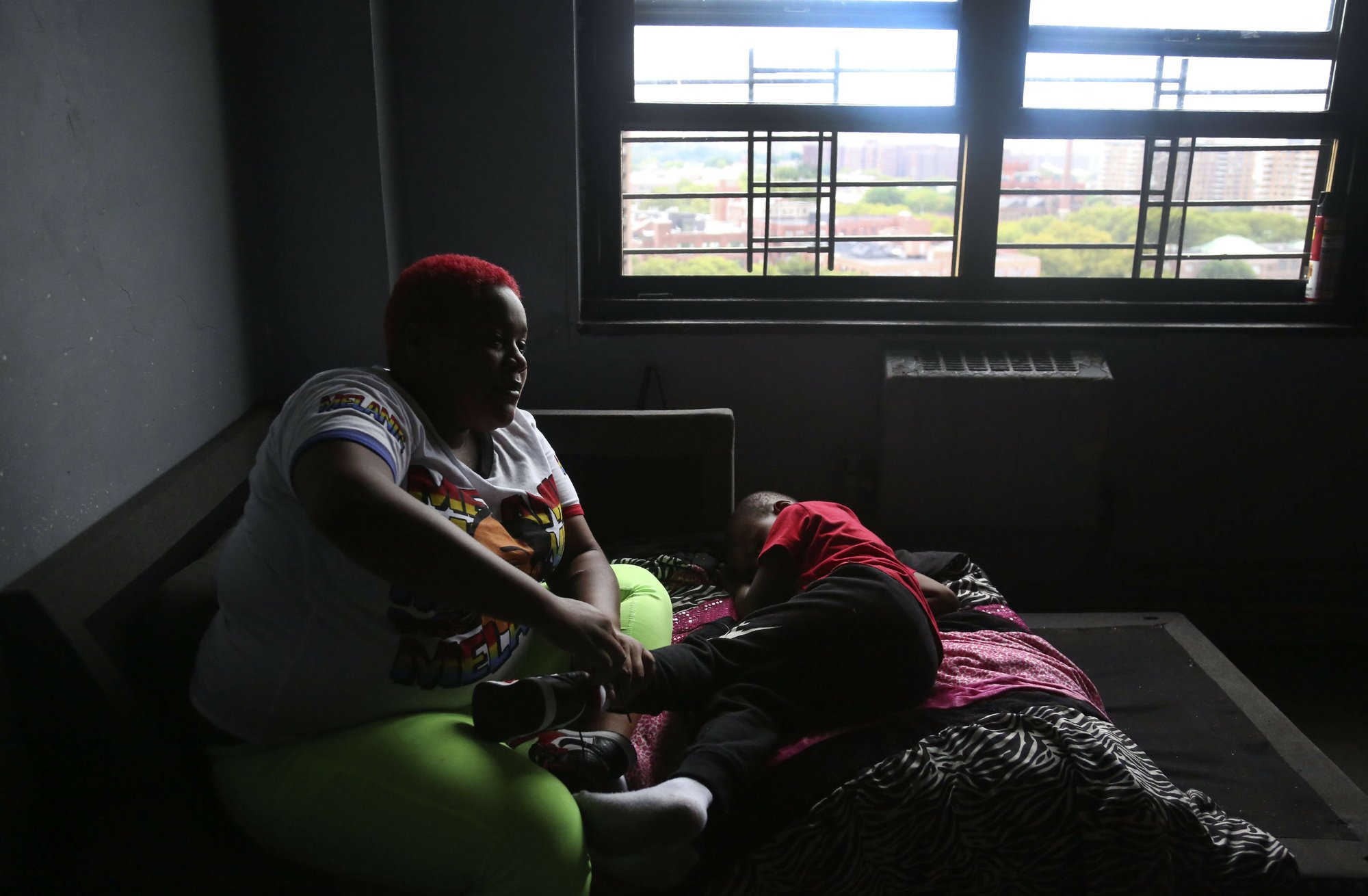
Things seemed to be looking up, but protests and clashes sparked by the police killing of George Floyd raised haunting memories of the incident from earlier in the year when police stormed the apartment building searching for a shooting suspect and pointed their guns at Mason as he was cleaning the litter for his cat, Shadow.
It traumatized the boy and made him angry at the police, she said. One day this summer, as she sat outside watching the latest protest, a neighbor called out her name. Across the street, Mason was jumping up and down on top of a patrol car. Vinson ran over.
“And when I grabbed him and I went to chastise him, I was at a loss for words, because how do I tell you not to be angry when four of their brothers in blue had guns to your head?” she said. “How do I tell you not to retaliate?”
Soon after, she called her ex-partner in North Carolina, and on June 4 the twins headed south.
Living without them was hard, she said, but it bought her time to stabilize her ability to provide for them. She saved up food stamps and some money and found a job working for the 2020 U.S. Census.
One day she asked the restaurant owner who ran the pantry if she could bring back some trays for her housing complex. That effort has since grown to dozens of meals plus groceries and protective face masks that she and other volunteers distribute each Saturday.
The twins finally came home in August, in time for Maddison to celebrate her remote graduation from middle school along with friends and family and for Mason to take part in the first practice of the Brooklyn United Youth Football season.
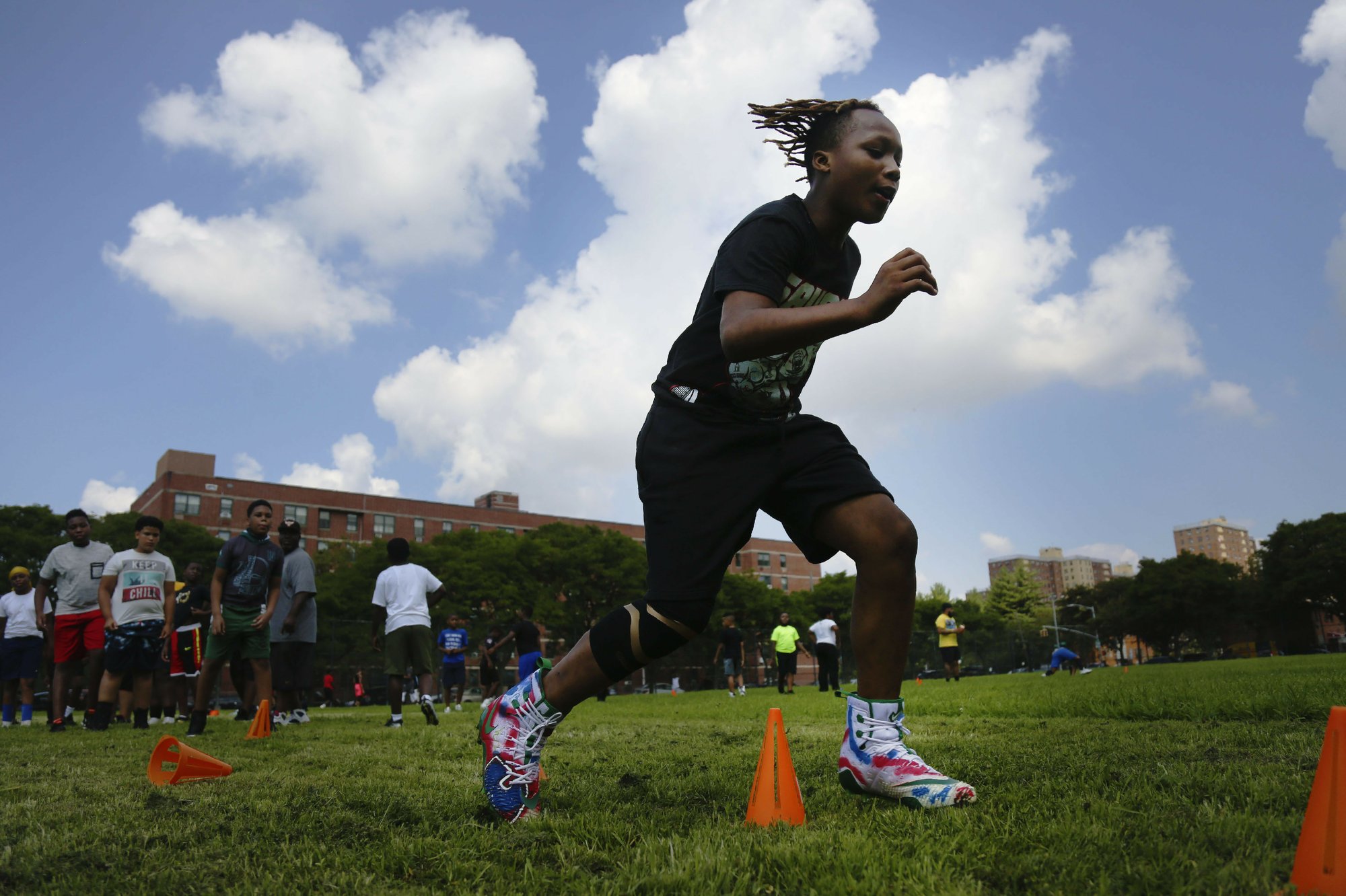
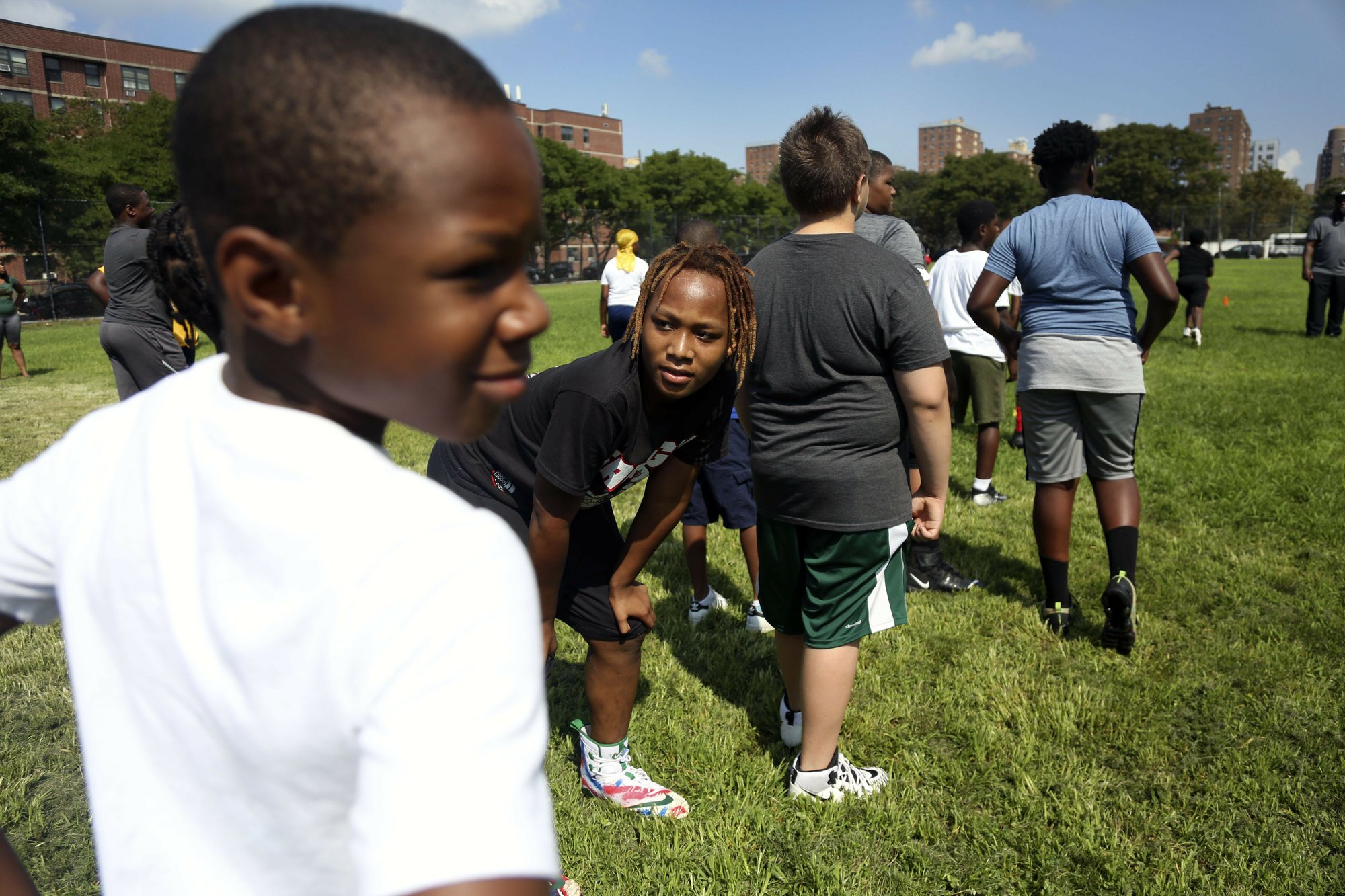
The police department apologized for the incident involving Mason and hosted him and a group of other kids and their families to discuss their concerns over pizza and chicken wings with high-ranking officers.
“These kids have been enduring a lot in the last couple of months, from the COVID wave to the Black Lives Matter, to the protesters, to the police brutality,” Vinson said. “And not too many times people stop and ask, How do they feel?”
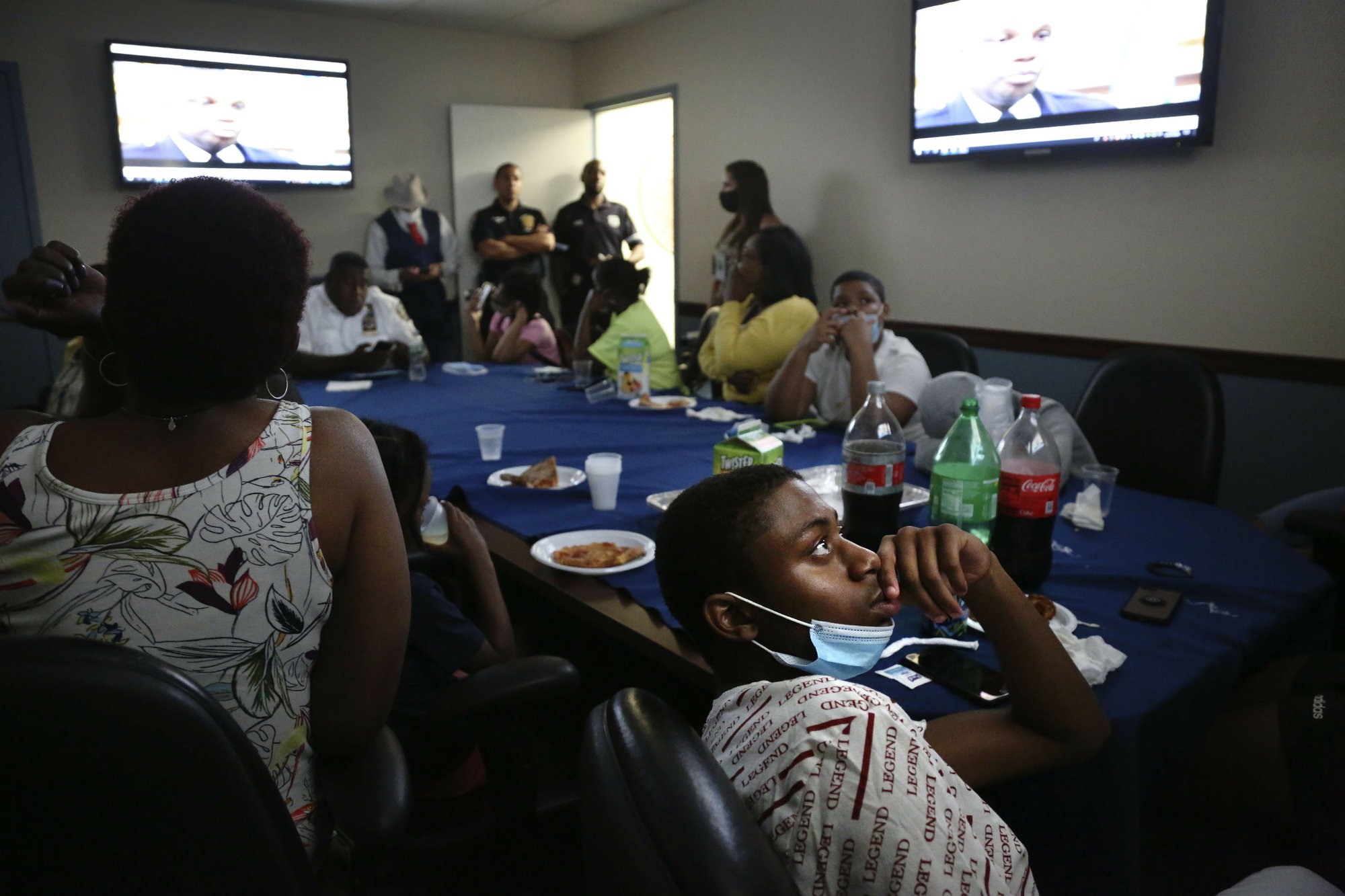
The coronavirus outbreak has slowed significantly in New York compared with earlier this year. But times remain tough: Their rent is four months overdue, and the cable is about to be cut off. On a recent day, the bathroom flooded, sending water running through the halls.
Still, Vinson feels fortunate.
“There are so many people who are out there who are hungry,” she said. “I got my grandson, I got my kids and I got my life. What do I get to complain about?”
AP / Balkantimes.press
Napomena o autorskim pravima: Dozvoljeno preuzimanje sadržaja isključivo uz navođenje linka prema stranici našeg portala sa koje je sadržaj preuzet. Stavovi izraženi u ovom tekstu autorovi su i ne odražavaju nužno uredničku politiku The Balkantimes Press.
Copyright Notice: It is allowed to download the content only by providing a link to the page of our portal from which the content was downloaded. The views expressed in this text are those of the authors and do not necessarily reflect the editorial policies of The Balkantimes Press.

